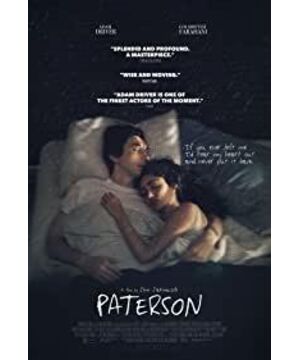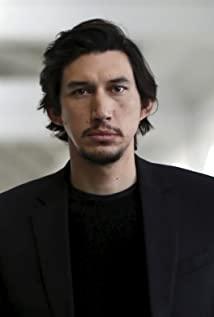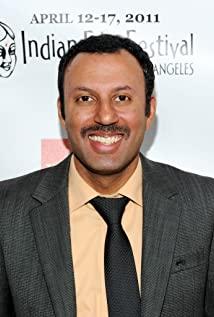In the face of these directors’ meticulous “weaving” of life, our protagonist Patterson is extremely silent and indifferent. The gentle temper, the kind smile at the corner of his mouth, and the always promised "good, very good" in his mouth, it is difficult for us to read his true feelings and passions. A young man who has an inseparable love for poets and poetry, the specific outline in front of the screen is so ordinary, without any expression, without drama, I understand that this is the effect that Jamux wanted to depict, but Just like the dual identity of "bus driver-poet", it looks beautiful, but director Jia's presentation is difficult to capture people's hearts. If at the beginning we still wonder if there is any story or secret behind Patterson, after the film goes deep, it's probably time to dispel this idea.
This movie makes me feel a little disappointed here too. There is no spark between the "bus driver" and the "poet" like a match in Ohio. If in the eyes of Director Jia, the "bus driver" is the true core of Patterson, a passerby, an ordinary person, an "anti-hero" hero, and poetry is just a symbol of everyone's cherishment and seriousness The hobby of treatment, then this movie is too "cold", because it portrays Patterson's work and life too poetic. If the "poet" is the core of this movie, Director Jia actually wants to use the image of Patterson to make a movie about "What is a poet? Where does the poetry come from?", and the "bus driver" just represents the profession behind the poet (It can also be like William Carlos Williams, a doctor; or Wallace Stevens, an insurance company manager), so to put it bluntly, this movie, at least as written by Jamush The image of Patterson does not answer this question well.
Say something serious. There are many poets mentioned in the film, Petrack, Emily Dickinson, Alan Ginsberg, but none of them is important, William Carlos Williams (1883-1963). This American poet who has published five volumes of poems named after "Patterson" is the "spiritual pillar" behind the entire movie. The imagism he represented briefly led the trend of modern poetry in the early twentieth century. Imagery, different from symbolism, focuses on describing and recording things themselves, rather than deliberately giving them meanings. Here, writing and reading poems is no longer a process of "coding" and "decoding", just like "the answer lies in the mystery." "What you read is what the author wants you to see. The pioneers of Imagism borrowed a lot of experience from ancient Chinese poems and Japanese haiku (this is why a Japanese was suddenly included at the end of the film), because there are too many "imagery" stacks in the ancient poems of the East. And in the process of stacking, poets rarely add subjective evaluation.
The most classic example is Ma Zhiyuan's "Tianjingsha·Qiu Si". You will understand what Imagism is by reciting this poem silently. However, the Patterson in "Patterson" does not seem to understand too much. In other words, the poems that Jamusch put in the movie (not all by Williams), and the feeling of Patterson, we don’t immediately think of "withered vines, old trees, faint crows, little crows". "Qiao Liushui Renjia" has a similar artistic conception. After all, the stacking of images is the projection of the poet’s subjective emotions in the objective world, and the “cold side” Patterson in the movie, the Patterson who we can’t figure out the true feelings, wants to understand his writings. His verses, or walking into his inner world, is really difficult.
In fact, this script should have been more flattering. Patterson, Newark, the hometown of Allen Ginsberg, and Rutherford, the birthplace of Williams, are not far apart from each other, and this area of New Jersey is not what we imagined. In the "Garden State" with green grass and scent of birds and flowers, New Jersey, where the former prosperous industry gradually faded after World War II, Patterson must no longer be what Williams had when he wrote her. However, Jamusch did not vividly show us the style and temperament of this area in a large number of street scene empty shots and passengers' speeches. On the contrary, due to the relationship of serving the plot, there was a little more poetry and exquisiteness imposed. I think the director’s art and quality are used in the wrong place.
The most confusing thing in the film is the phrase "Do you like Dickinson?" Emily Dickinson, who lives alone, but is surprisingly energetic, and has a wild imagination, like thunder and lightning. Not to mention the connection between Water Falls and Dickinson. Review the whole film and think about the Paterson in your mind. I am afraid that I have to ask, what do you like about Dickinson?
View more about Paterson reviews











